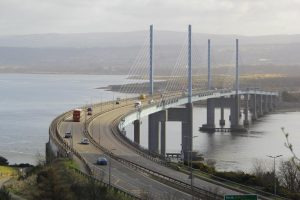Budget 2009: At a glance

THE Chancellor unveiled his Budget amid the “most serious economic turmoil for 60 years”.
He warned there were no “quick fixes”, but said the steps already taken by the Government have given him “good grounds” for confidence.
He said the Budget would build on measures for business set out in November’s pre-Budget report and the recapitalisation of the banks.
And he predicted the economy would grow again at the end of the year.
Key points included:
• 2p per litre on fuel from September and 1p per litre in April. A 2% rise in duty on tobacco from 6pm and on alcohol from midnight.
• £2,000 discount on new cars for those willing to scrap cars more than 10 years old. The scheme will run from May to March 2010.
• Extension of the stamp duty holiday on homes worth less than £175,000 until the end of the year.
• A £3,000 increase in the ISA limit to £10,200, with the cash limit rising from £3,600 to £5,100. It will come in this year for savers over 50 years old and from April 2010 for everybody else.
• A new tax bracket of 50% for those earning more than £150,000 and restrict personal allowances for those earning more than £100,000 from next April.
• From 2011 pension tax relief restricted for those earning more than £150,000.
• The economy will shrink by 3.5% in 2009 but is forecast to pick up and will grow by 1.25% next year.
• Borrowing will rise to £175bn this year, 12% of GDP. The Chancellor forecast this figure will shrink to 5.5% of GDP by 2013-14.
• Public spending growth will be reduced to 0.7% down from 1.1% in 2011-12.
• £260m for skills and experience in sectors “with strong future demand”.
• £500m financial support for housebuilding which includes £100m for local authorities to build energy efficient housing.
• The establishment of a £750m investment fund providing financial support focusing on emerging technologies such as digital and biotech. It will also complement the ‘city region’ pilots in Manchester and Leeds.
• Businesses will see the main capital allowance for investment double to 40% for 2009-10.
• £525m new support for off-shore wind farms and £405m new funding to encourage the use of low carbon energy.







